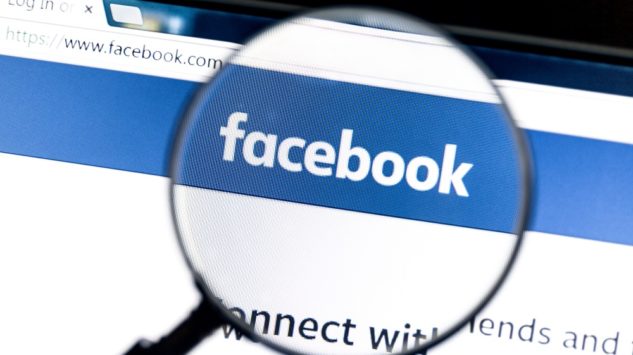Issue Briefs

The Movement to Delete Facebook
Fazle Chowdhury
April 23, 2018
Mark Zuckerberg, CEO and founder of Facebook said the Delete Facebook campaign has had little impact. He is right. 4% loss in Facebook stock is hardly a hit for a company that has a revenue stream of more than $40 billion. Bear in mind that 98% of its income comes from advertisers.
The advertisers include Cambridge Analytica the consulting outfit that has caused the company a major scandal and an uncomfortable level of bad press. The magnitude of the damage hasn’t been felt by Facebook, yet. The consumers are however unhappy. It would be a mistake to downplay the possible negative impact of this reputational damage for a platform that has shaped much of the social media universe over the past decade.
The first suggestion about deleting Facebook came at a recent TED talk, held in Vancouver, Canada by none other than the prominent Jaron Lenier. He is the father of virtual reality, considered by many as a tech evangelist. He is the founder of VPL Research, Inc., the first company to sell VR goggles. Lenier has consistently petitioned for Facebook and Google to give its users ad-free options.
Both companies have remained defiant in their opposition to this as they believe that such a move would be hugely unpopular. Is it really so? One cannot completely write off a business model in which without ads circulating in social media the platforms can generate a revenue stream to sustain themselves or sustain their existing and future operations. But most tech leaders would disagree. The late father of advertising, David Ogilvy would agree. He chastised his employees who wanted to be “creative”. Ogilvy once said: “Your role is to sell, don’t let anything distract you from the sole purpose of advertising”.
Using that paramount logic, Facebook must sell. But did Cambridge Analytica pay Facebook a fair price? Possibly not. The whole scandal began in a much-systemized extraction of methodology. Factually, more than 50 million Facebook user data were acquired illegally from 270,000 Facebook users who shared the data with the app “thisisyourdigitallife” in 2015. Breaking Facebook’s terms of service, they delivered the data to Cambridge Analytica.
Facebook can claim it is just a victim of Cambridge Analytica, just as its users are victims. Yet, the social media giant has consistently permitted such entities to operate freely in using their platform. It has said it will act against far-right individuals and groups – it has not. It has said it will act against hate speech in the comment category – it has not. It has said it will fight fake news – it has not.
The question is: can other platforms provide what Facebook has built upon? Possibly not.
Much of it plays to the narrative provided by Mr. Lenier while interviewed by the BBC. He said he had realized that “the technology we needed and loved could also be our undoing”. “We made a very particular mistake in the 90s when early digital culture had this lefty, socialist mission, which meant that everything on the internet must be available for free,” he added.
There is no doubt that Facebook has an inimitable effect in most societies. Even in North Korea, where internet access is restricted to regime elites and select university students, the great haranguer Kim Jong-un may still have his own Facebook profile hacked; and with it, his key essential posts and pics along with his affianced words of revulsion directed towards his enemies.
So too has the platform been a part of the messaging in the opposing nature in what has been viewed in social uprisings in the Arab Spring in 2011 when videos of protestors and their subsequent struggles were linked to the dismay of horror emotions from onlookers around the world.
The criticism of Facebook however is showing no signs of halt. Rather it is penetrating slowly like venom of a snake.
Indeed, big names are endorsing the anti-Facebook movement. Apple co-founder Steve Wozniak, the actor Will Ferrell and Tesla’s Elon Musk are among those who have deleted or deactivated their accounts. The WhatsApp co-founder Brian Acton has declared to do the same. Never mind that Facebook owns his company.
Mark Zuckerberg has responded on the matter. He claims that not a “meaningful” number of his users have quit his service. What that “meaningful” number may be, is at this stage debatable. Zuckerberg would be wise to follow the advice provided by Ben Horowitz, CEO of Andreessen Horowitz. “Every time you make the hard, correct decision you become a bit more courageous, and every time you make the easy, wrong decision you become a bit more cowardly. If you are CEO, these choices will lead to a courageous or cowardly company.”
Perhaps its wise not rush to judgement on the fate of Facebook. But it would be good for the social media giant to begin to take notice of the uproar its actions have caused.
 |
Fazle Chowdhury is a Global Policy Institute Fellow. He is a Management Consultant and founder of FazC – a Public Speaking firm specializing in Conflict Economics. Mr. Chowdhury‘s experiences include monitoring terrorism finance, developing effective financially strategic battle plans to strengthen Client organization’s incidents and Consulting with the US Department of Defense. His previous professional engagements include the United Nations Development Program (UNDP) – Azerbaijan, Booz Allen Hamilton, IBM, and Price Waterhouse Coopers. Mr.Chowdhury received his Master of Science in Organization Management from Northeastern University and has also completed the Executive Program & Stewardship in Management from Harvard University’s Kennedy School of Education.
The views and opinions expressed in this issue brief are those of the authors and do not necessarily reflect the policy of GPI. |